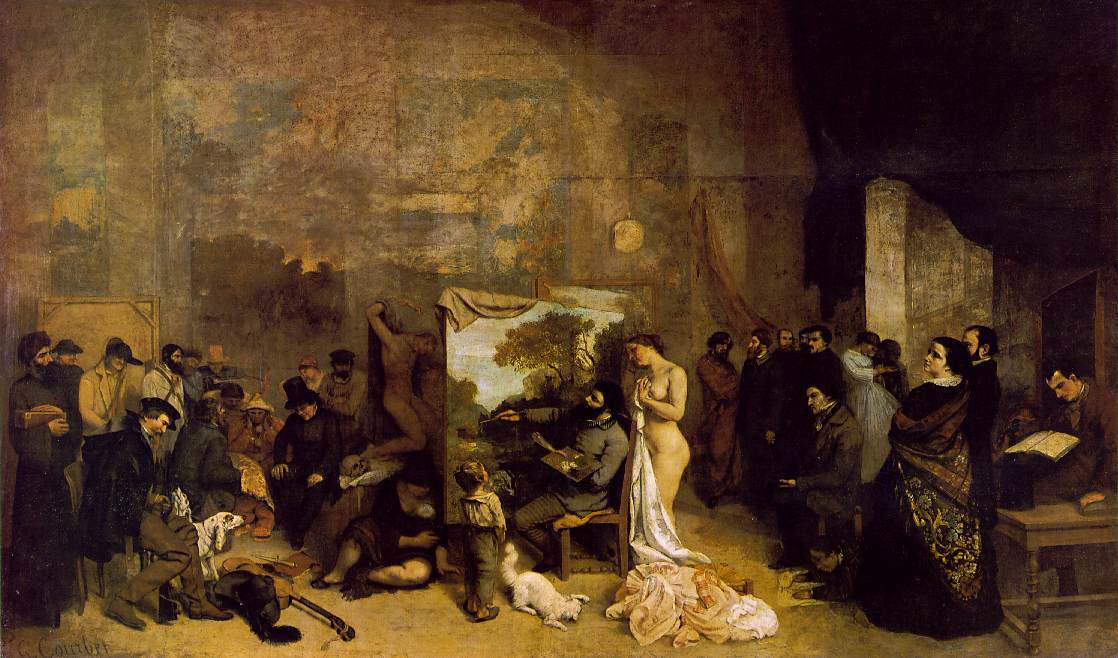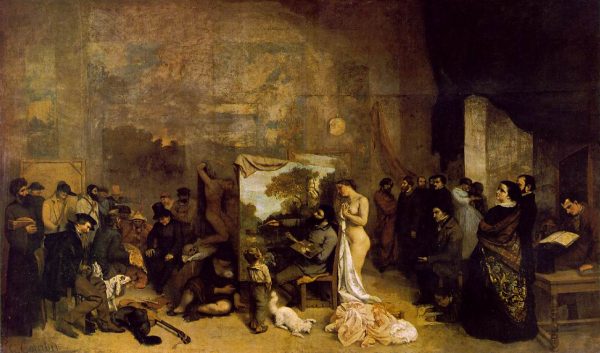The Artist’s Studio in the 19th Century
Gustave Courbet’s monumental (nearly 4 x 6 meters) 1855 oil painting The Artist’s Studio is only the most famous of many depictions of this curious space in human culture.
Ok, the real name of Courbet’s painting is actually, The Painter’s Studio: A Real Allegory of a Seven Year Phase in my Artistic (and Moral) Life, but many peeps, often including myself, “want” to call it “The Artist’s Studio.” The cavalcade of characters in this masterpiece make me think of the myriad possibilities held in the unfolding of our lives.
Why for all this splendor did I refer to the Artist’s Studio as a “curious” space?
The Artist’s Studio in the 20th Century
I just watched a short interview with artist Amie Dicke, it was part of Object Rotterdam 2011 and the interviewers were Roos van der Lint and Anna van Leeuwen. The first words you’ll hear on the video are,
Amie, we’re in your studio right now, and I was hoping, could you tell me what this studio means to you as an artist?
It’s a wonderful interview that manages to think a lot about gender, identity, and other ideas so fitting for us here at iRez, all in just 3 minutes. For now though, I’ll resist thinking about that because that opening question just hit me so hard. Marina Abramovic has famously said that The Studio is the worst place for an artist to be. That to actually make art you have to get out of the studio and into the world.
From Courbet to Dicke to so many other artists in the 156 years that separate Courbet’s painting and Dicke’s interview, the artist’s studio has been such an extraordinary place. For some artists “The Studio” is “The Garage,” and that space has such a rich history of innovation: artists, rock bands, inventors, and of course Silicon Valley legends. I said a few words about that space back in April when I wrote about “Garage Band & Public Storage.”
The Artist’s Studio in the 21st Century?
When you think about Performance Artists, about Public Space, about Land and Earth art, about Augmented Reality interventions in the topographic world, well, of course, many of these artists did have a “studio” where the work was, if not “realized” then at least “staged” before it was realized out in some sort of Public Space. It’s right to think about the artist’s studio and van der Lint and van Leeuwen do a lot of great thinking with Dicke in just a few minutes, still, I wonder if, here in the 21st century, is it fetishization to still think about this space in some special or sacred way? Isn’t the “artist’s studio” of the 21st century any place your laptop can get a decent WiFi signal? And will it even be that specific once Google Glass terraforms human culture?
R E L A T E D . M A T E R I A L S
• Object Rotterdam
• Garage Band & Public Storage

